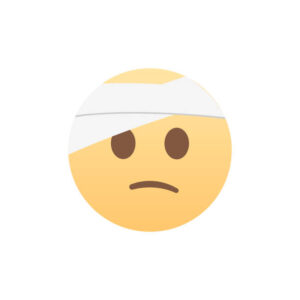Vitamin A is vital to vision, cell function, and immunity. It plays an important role in cell growth and differentiation and the formation of embryos. It is necessary for all humans, though particularly for developing children and soon-to-be pregnant, pregnant, and lactating mothers.
Preformed vitamin A is found in animal sources, though particularly in fish and liver oils. Don’t despair if you’re vegan because it is also synthesized from provitamin A or beta-carotene. Green leafy vegetables, broccoli, melons (cantaloupe), squashes, carrots, sweet potatoes, red cayenne peppers, sour cherries, mangoes, persimmons, papayas, apricots, and some vegetable oils are high in beta-carotene. When in doubt, eat a diet full of color to make sure you’re getting enough nutrients.
This vitamin is a fat-soluble vitamin. Fat-soluble vitamins, like A, D, E, and K, are stored in fatty tissues and in the liver. Our bodies use those stored vitamins as we need them. Large quantities of fat-soluble vitamins are toxic because our body stores them rather than expels them. Furthermore, visit our Vitamins and Deficiencies blog for more information.
Vitamin A Deficiency
Firstly, this deficiency is uncommon in the United States. This condition mostly affects young children from Africa and Southeast Asia, among other developing nations. Deficiency is linked to limited access to foods containing beta-carotene. The World Health Organization (WHO) has developed strategies to deliver this vitamin to infants and children around the world, through national health policies. Additionally, pregnant women in many developing nations are deficient. This deficiency negatively impacts fetus development during pregnancy and lactation, and in developing infants and children.
In addition, there is an association between measles and vitamin A deficiency in developing countries. Studies show that treatment with supplements somewhat reduced the risk of mortality associated with pneumonia in children under two. Chronic diarrhea also leads to vitamin A deficiency as large numbers of nutrients are being lost and may not be replaced.
Deficiency Signs & Symptoms
- Xerophthalmia (abnormal dryness and inflammation)
- Night blindness
- Diarrhea
- Low iron leading to anemia
- Increased risk of infection
- Failure to thrive
Toxicity
Vitamin A is a fat-soluble vitamin, meaning that the body stores excess quantities. Levels eventually accumulate in the body and cause toxicity. Eating too much typically only occurs in populations that eat a lot of liver and animal-sourced vitamin A. It is difficult to expel from the body after it has been metabolized. So, too much vitamin A can cause liver damage. Consuming excess animal-sourced vitamin A for pregnant women was also associated with some birth defects.
 Beta-carotene toxicity is not associated with any of the beforementioned conditions or risks. However, excess beta-carotene is called carotenemia. Carotenodermia is a harmless condition where the skin becomes a yellow or orange pigment. Reverse carotenodermia by eating less beta-carotene.
Beta-carotene toxicity is not associated with any of the beforementioned conditions or risks. However, excess beta-carotene is called carotenemia. Carotenodermia is a harmless condition where the skin becomes a yellow or orange pigment. Reverse carotenodermia by eating less beta-carotene.
Toxicity Signs & Symptoms
- Dizziness
- Headaches
- Increased intracranial pressure
- Irritated skin
- Joint pain
Keep all adult medications and vitamins far out of reach of children. Do not leave pill bottles out or open and store them way above kids’ reach. Additionally, buy kid vitamins for your kid. Kid vitamins are harder to overdose on and are less likely to cause damage than adult vitamins. Choose a good kid vitamin your little one can take regularly to fill in any nutrient gaps.
Furthermore, the FDA doesn’t typically test or regulate supplements. Problems with safety, contamination, and quality are common, even if purchased from a reliable source. Visit the Growing Healthy Together Fullscript page for a look at the vitamin and mineral supplements that we prefer.
Vitamins
Finally, it is hard to include the right balance of vitamins your kids need through food alone. Therefore, provide good, balanced meals for your little ones. Because of dietary differences, families who are vegetarian or vegan may need to rely on supplements for some vitamins. Additionally, if your child has bad eating habits or poor access to healthful food, they may require supplements.
For those interested in the minimum RDA (Recommended Dietary Allowances), refer to the National Institutes of Health Nutrient Recommendations.
Also, go to your local lab to test if you or your child are deficient. If you choose to use supplements, it is important to maintain good health in other ways. Eat a healthy diet full of color. Educate yourself on nutrient requirements. And, as always, keep all supplements out of the reach of children.
Check back in on our blog series for a more in-depth look, including the following:
- Vitamin A
- B Vitamins
- Vitamin C
- Calcium and Vitamin D
- Vitamin E
- Iodine
- Iron
- Vitamin K
- Magnesium
- Omega-3 Fatty Acids
- Zinc
Finally, for questions or concerns, respond to this blog or contact us!







